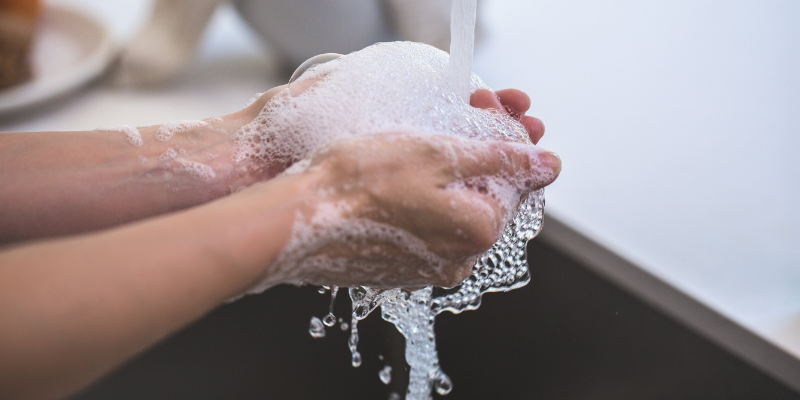
Today is World Hand Hygiene Day! We want to teach you the importance of why regularly washing your hands with soap and water is one of the best ways to avoid getting sick and removing germs. Germs are easily spread from surfaces and from person-to-person contact. There are key times when you should be washing your hands. Some of these key times include before food preparation, after using the restroom, after blowing your nose, etc. Below, we will give you four fun and easy tips to teach your kiddo proper hand hygiene.
1. Sing Songs When Washing Your Hands
Many kids do not want to stay still long enough to wash their hands for the proper amount of time. Singing songs while teaching your children how to have proper hand hygiene can be a successful method. Sing your child's favorite song with them or even make up a “hand-washing” song that you sing every time they go to wash their hands.
2. Sticky Germs Activity
For this activity, have your child color different germs. Once these are complete, you can put them on surfaces where germs are commonly found. This will allow your child to see the most familiar places where germs like to hide!
3. Use Hand Sanitizer Wipes
Having your child wash their hands with soap and water is the most effective way to kill germs, however, there is not always a sink accessible. Throw some anti-bacterial wipes in your car, purse, suitcase, etc. The convenience of hand sanitizer wipes still allows for children to remove the germs from their hands even in the most inconvenient locations.
4. The Pepper Experiment
The Pepper Experiment is a fun way to instruct kids about germs. For this experiment, all you need is water, black pepper, and dish soap. You and your child should fill a bowl with an inch of water and then sprinkle black pepper over the water. Instruct your child to first, put their finger in the water. As you will see, nothing happens. When your child puts dish soap on their finger and puts it back in the water, the pepper will quickly move away from them.
In this experiment, black pepper represents germs. By using soap, it creates a barrier so germs cannot rest on your child's skin.
Now that you know some fun, easy activities to teach your child proper hand hygiene, start researching the ones you would enjoy using. If you have any questions, feel free to visit our website or contact us for any recommendations!
May 14, 2022 by Life Tech
Today is World Hand Hygiene Day! We want to teach you the importance of why regularly washing your hands with soap and water is one of the best ways to avoid getting sick and removing germs. Germs are easily spread from surfaces and from person-to-person contact....